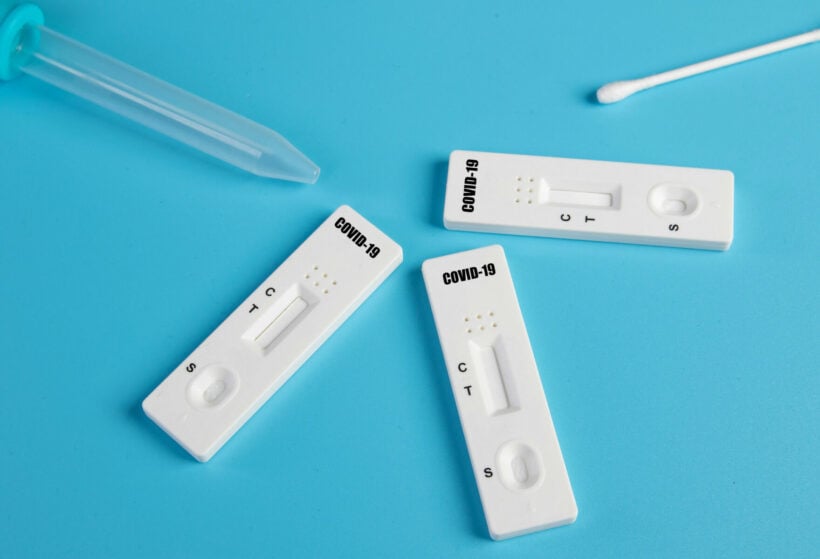Thailand’s updated Covid guidelines: What to do if you test positive or have symptoms

Following the surge in Covid-19 cases over the past two weeks, the government has announced an update on guidelines on the treatment and management of Covid-19 patients. Cases involving the highly contagious Omicron variant is on the rise, but Thai health officials say that luckily most patients have mild to no symptoms and do not need to undergo treatment at a hospital.
To ease the burden on the public health care system, officials are advising those with mild to no symptoms to isolate themselves at home or at a community isolation centre. To undergo home isolation, those who test positive must still report their positive ATK result to Thai health officials. Patients must consult with a doctor to determine if they are eligible for home isolation. Those who have mild to no symptoms with living space where they can isolate from others should be able to isolate at home.
Those who refuse to quarantine or get treatment for Covid-19 under the government’s guidelines can face a penalty of up to two years in jail and an up to 40,000 baht fine.
After the New Year’s holiday, taking regular at-home Covid-19 tests have become the “norm.” Here are a couple of scenarios with guidelines from the government…
What should I do if I tested positive in an at-home antigen test?
First, immediately isolate yourself from friends and family. Then, call the National Health Security Office’s hotline at 1330 or message their official LINE account, @nhso. You can also contact the provincial or local health office. You will need to confirm your test result with an RT-PCR test.
After discussing symptoms and if you have any health conditions that put you at risk of a severe infection, staff from the NHSO will advise you on the next steps, which could be home isolation, community isolation, a stay at a field hospital, or a hospital.
Those who are asymptomatic, or have mild symptoms and no risk factors, can undergo either home isolation or community isolation for those who live with family or do not have a private living space to isolate themselves in. The CCSA says officials will monitor those who are undergoing home isolation and provide proper medicine for those who need it.
Those who have severe symptoms, or develop severe symptoms while at an isolation centre, will be immediately admitted to a hospital for treatment. Those who are infected with Covid-19 and have underlying health conditions that put them at risk of a severe infection will also be sent to a hospital.
Risk factors include…
- Fever over 39 degrees Celsius for more than 24 hours
- Underlying health conditions that put them at risk of a severe infection, including diabetes, cardiovascular disease, and chronic respiratory disease
- For adults, having rapid breathing of 25 times or more per minute
- A low blood oxygen level of less than 94%
- For children, difficulty breathing and drowsiness
What should I do if I tested negative, but I have symptoms and was in close contact with someone infected with Covid?
If you have Covid-19 symptoms and were in close contact with someone infected with Covid-19, the government advises you to go to a hospital or clinic to take an RT-PCR test. If the test is negative, continue to practice the standard disease control measures like wearing a mask and using hand sanitiser.
If the RT-PCR test is positive, health officials will make an assessment and determine if you should undergo home isolation or be sent to a hospital for treatment.
What if I tested negative and I don’t have symptoms, but I was in close contact with someone?
If you went to an area at high risk or you were in close contact with someone, the government advises you to self-isolate and take an at-home Covid-19 test every three days. If the test comes back positive, contact the NHSO by calling the 1330 hotline or messaging their official LINE account, @nhso.
If you are considered to be at low risk of catching the virus, the government advises you to continue practising the standard disease control measures which include social distancing, mask-wearing, regular hand washing, and temperature checking when entering establishments.
Latest Thailand News
Follow The Thaiger on Google News:


























